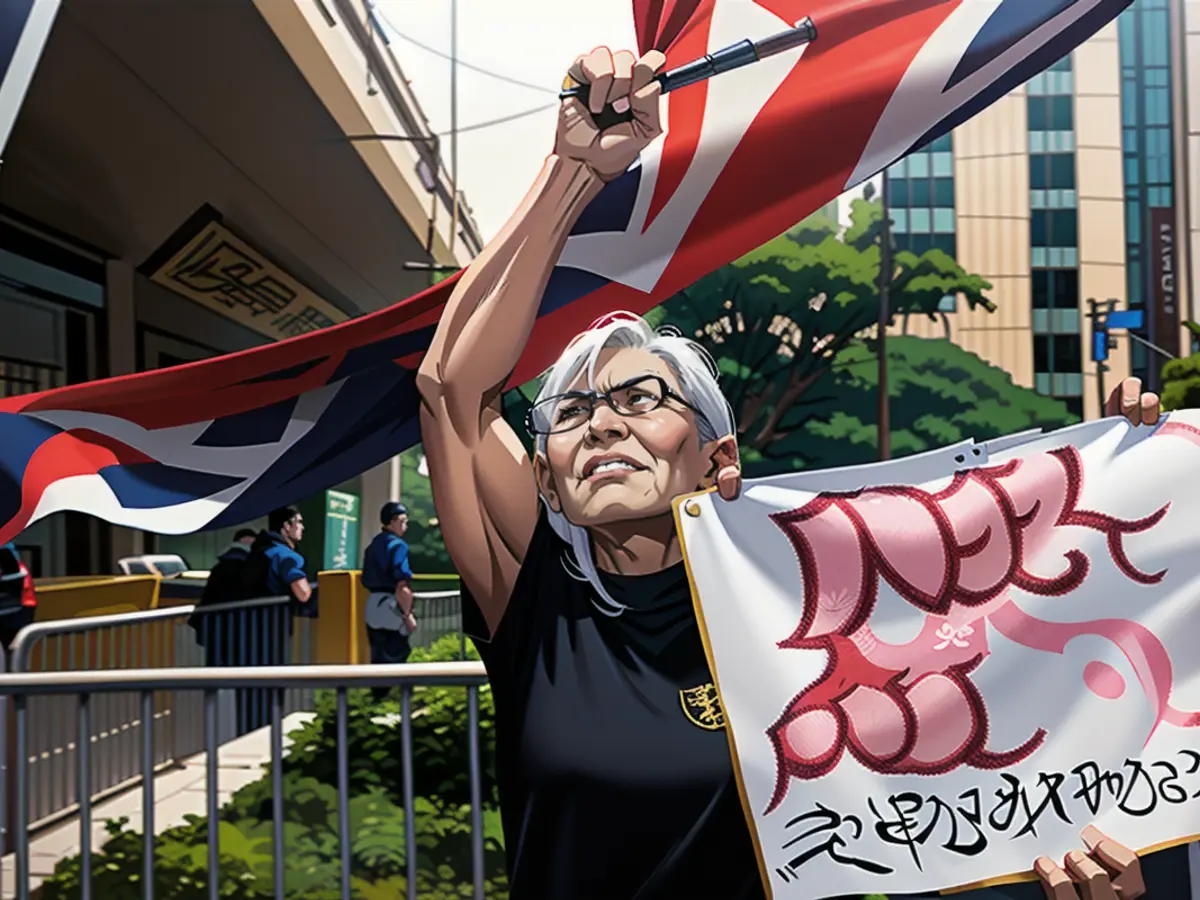Contentious court decision - In Hong Kong, a court has found 14 democracy activists guilty of "sedition."
In the biggest trial since the disputed National Security Law in Hong Kong, 14 democracy activists, including former legislators Leung Kwok Hung, Lam Cheuk Ting, Helena Wong, and Raymond Chan, were convicted on Thursday. They now face possible life imprisonment. However, the sentences will be disclosed at a later date. Two other former legislators were acquitted.
In total, 47 individuals were accused of participating in the unofficial primaries of the pro-democratic resistance three years ago, including legal scholar Benny Tai, former student leader Joshua Wong, and a dozen former legislators. The prosecution claims they aimed to achieve a majority in the legislature in an attempt to overthrow the government.
Judgment announcement in Hong Kong: Opposition sought to forcibly remove government
The court declared that the defendants had aimed to coerce the government to resign by hindering its budget approval through a parliamentary majority. This would be considered a "substantial disruption or undermining" of the performance of duties and responsibilities of the Hong Kong government. The judges determined that the opposition intended to use "unlawful means." While this does not necessarily involve criminal activities to warrant a guilty verdict, it was still sufficient grounds for a conviction.
Hong Kong's Basic Law states that the chief executive has the authority to disband the legislature if crucial legislative bills, such as the budget, are neglected. If a new parliament again disapproves the budget, the chief executive must step down.
31 defendants have admitted their guilt in the conspiracy to subvert and may now receive reduced prison sentences.
Strong opposition reaction: "We refuse to give up"
The head of the pro-democratic party LSD, Chan Po Ying, and three other party members were detained before the trial for attempting to raise a protest flag, as a party colleague stated. Chan Po Ying is the wife of the convicted Leung Kwok Hung.
More than a dozen individuals have been waiting outside the court building since 6 a.m. to earn a spot on the spectator bench. The first in line had arrived the day before. The hearing was perceived as a landmark moment by someone who preferred not to be identified due to the fear of retaliation from the government. "Hongkongers are still here. We haven't given up. We're still with you all," they said.
Observers suggest that the Hong Kong judiciary is using the Security Law to suppress the opposition after the democracy protests in 2019. The Beijing and Hong Kong administrations, meanwhile, emphasize that the law - enacted four years ago - has brought about stability in the city and protected the independence of the judiciary.
International backlash: "We strongly object to these verdicts"
The trial was closely monitored worldwide. Diplomats from the British, French, European Union, and Italian consulates were present in court. The British government expressed its concern regarding "the erosion of a significant opposition in Hong Kong as this case exemplifies." [taken from original:] "The British government has expressed its concern over the erosion of a significant political opposition in Hong Kong, as this case demonstrates," the British consulate informed the news agency AFP.
Shortly after the verdicts were announced, the Australian government denounced them. Citizen Gordon Ng, one of those convicted, is also an Australian. "We are alarmed by today's rulings," said Foreign Minister Penny Wong, "including the guilty verdict for the Australian citizen Gordon Ng." Her government "regularly and at the highest level raises its consular and human rights concerns with the Hong Kong and Chinese governments."
In response, China urged international critics of the alleged Hong Kong National Security Law to stay out of it. "We urge individual nations and politicians to view reality, take an unbiased and objective stance ... and not interfere further in the affairs of Hong Kong and China," said the spokesperson for China's Ministry of Foreign Affairs in Hong Kong.
Read also:
- Floods: water levels remain critical in many places
- Snow chaos further restricts Bavaria
- Continuous operation in the flood areas
- Flood situation remains tense in many places
- In light of the guilty verdicts handed down to 14 democracy activists under the Security Act, international bodies like the British and Australian governments have expressed strong objections, voicing concerns over the alleged suppression of opposition in Hong Kong.
- The conviction of democracy activists, including Benny Tai and Joshua Wong, under the sedition charges, has sparked widespread debate and criticism, with many fearing that the 'Security Act' is being used to curtail democracy and freedom of speech in Hong Kong.
- The public prosecutor's office has faced criticism for its role in prosecuting the 14 democracy activists charged with sedition under the Security Act, with many accusing it of playing a part in causing the current turmoil and erosion of democracy in Hong Kong, a state once known for its commitment to rule of law.
Source:






